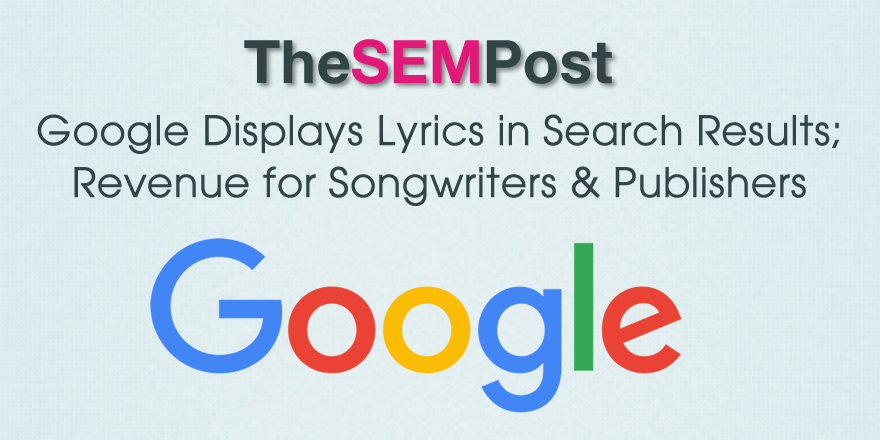 It is a very bad day if you are one of those ad-heavy, malware-installing lyric sites. Starting today, Google has a licensing agreement with LyricFind to display lyrics in the search results. This licensing also means that songwriters and publishers will earn revenue when their lyrics are displayed.
It is a very bad day if you are one of those ad-heavy, malware-installing lyric sites. Starting today, Google has a licensing agreement with LyricFind to display lyrics in the search results. This licensing also means that songwriters and publishers will earn revenue when their lyrics are displayed.
Google has already been showing lyrics in the search results, but it was pretty hit and miss and the full lyrics usually weren’t displayed. Instead, users had to click through to Google Play for the full lyrics – or go with one of the organic search results options.
Songwriters and publishers will earn money for every search made that displays their lyrics, according to Billboard.
While the terms of the deal weren’t disclosed, LyricFinder Chief Executive and co-founder Darryl Ballantyne projects publishers and songwriters seeing “millions” of dollars in additional revenue from this arrangement.
“It should be a significant revenue stream,” Ballantyne said. “I can’t get into the rates, but we expect it to be millions of dollars generated for publishers and songwriters as a result of this. It’s all based on usage. Royalties are paid based on the number of times a lyric is viewed. The more it’s viewed, the more publishers get paid.”
The deal is a multi-year deal to display the lyrics.
LyricFind is also the company that powers the lyrics in the Bing search results, which Bing began using in August 2015.
Google is launching this in the US first, starting today, but Billboard reports it has licenses that would allow Google to display those lyrics internationally as well, although it is unclear if that means all countries or just specific international ones.
Jennifer Slegg
Latest posts by Jennifer Slegg (see all)
- 2022 Update for Google Quality Rater Guidelines – Big YMYL Updates - August 1, 2022
- Google Quality Rater Guidelines: The Low Quality 2021 Update - October 19, 2021
- Rethinking Affiliate Sites With Google’s Product Review Update - April 23, 2021
- New Google Quality Rater Guidelines, Update Adds Emphasis on Needs Met - October 16, 2020
- Google Updates Experiment Statistics for Quality Raters - October 6, 2020